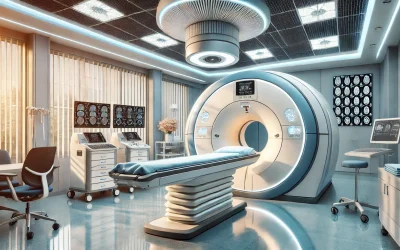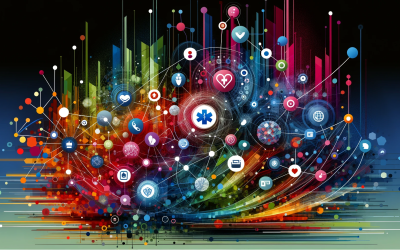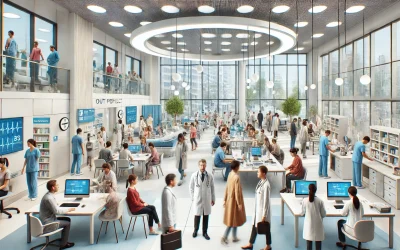The Future of Healthcare Analytics with AI and Machine Learning
Introduction
keywords: healthcare analytics, machine learning, artificial intelligence
The healthcare industry is one of the most data-driven industries in the world. This has led to an increased need for healthcare analytics and machine learning. Artificial intelligence and machine learning have become increasingly popular in the healthcare industry because they provide solutions to many of the challenges faced by hospitals and physicians.
Machine learning is a type of artificial intelligence that allows computers to learn from data without being explicitly programmed, which can be applied to healthcare analytics. Machine learning algorithms are used to detect patterns, trends, associations, and other insights from data sets in order to make predictions about future events or behaviors. These predictions can then be used by clinicians or patients as a guide for decision making. One example is using machine learning algorithms that can differentiate between healthy and cancerous cells based on their genetic makeup so that doctors can more accurately diagnose cancer patients.
Another application of artificial intelligence in healthcare is using it as a tool for diagnosis instead of just as a tool for prediction or analysis-based decisions. Artificial
What Is Healthcare Analytics?
keywords: healthcare data analytics, data driven healthcare
Healthcare analytics is the use of data to analyze and manage healthcare.
Healthcare analytics provides insights into how people are being treated, how they are responding to treatments, and what can be done to improve those treatments.
Healthcare analytics is a growing field in the healthcare industry. It has been used for years in other industries like retail and finance but has only recently been applied to the healthcare industry.
Healthcare Analytics For Better Decision Making
keywords: healthcare data trends
The healthcare industry is one of the most lucrative industries in the world. It is also one of the most data-driven industries in the world. The healthcare analytics are used to make better decisions within this industry.
Healthcare data trends are helping us learn more about our health and how we can improve it. They help us understand how our habits affect our health, what diseases we are susceptible to, and what treatments work best for us. They also help us find new treatments for diseases that have yet to be cured and come up with new ways to prevent them from happening in the first place.
AI and Machine Learning in Healthcare – the Potential of the Future
keywords: machine learning health care, ai health care industry
Healthcare is one of the most important industries in the world. The industry is finally embracing new technologies and innovations to make it easier, more effective, and more personalized.
AI and machine learning are two of the most promising technologies that can help healthcare become better.
The AI health care market size is expected to grow from $200 million in 2018 to $3 billion by 2023.
There are many potential use cases of AI writing tools in this sector: from assisting doctors with their day-to-day work to helping patients manage their illnesses on their own. .”AI writing tools may be helpful in care management, as they allow patients to synthesize large amounts of medical information,” he said. “In this way, they are able to more easily consult with and understand their condition.”Chen also added that AI writing tools could provide doctors with a better understanding of their patient’s condition. He explained that it could help the doctor by providing the patient’s medical history, symptoms and family background in a more personalized manner. According to the report, the software algorithm could also help by sending text messages to doctors when red flags are raised.A new report suggests that mobile apps have the potential to revolutionize healthcare for patients. Benjamin Hensbey, a PhD student in computer science engineering at Stanford University in California, said that a medical app can help improve patient care by providing information such as medical history and symptoms in a more personalized manner.
Hensbey’s research states that “AI and chatbot technology can help fill the demand for a customer service representative. Chatbots are already being used in this way by companies such as Comcast, and they’re set to be a staple of future customer service.” This is because chatbots can work 24/7 without needing breaks or rest, and they don’t get tired.






